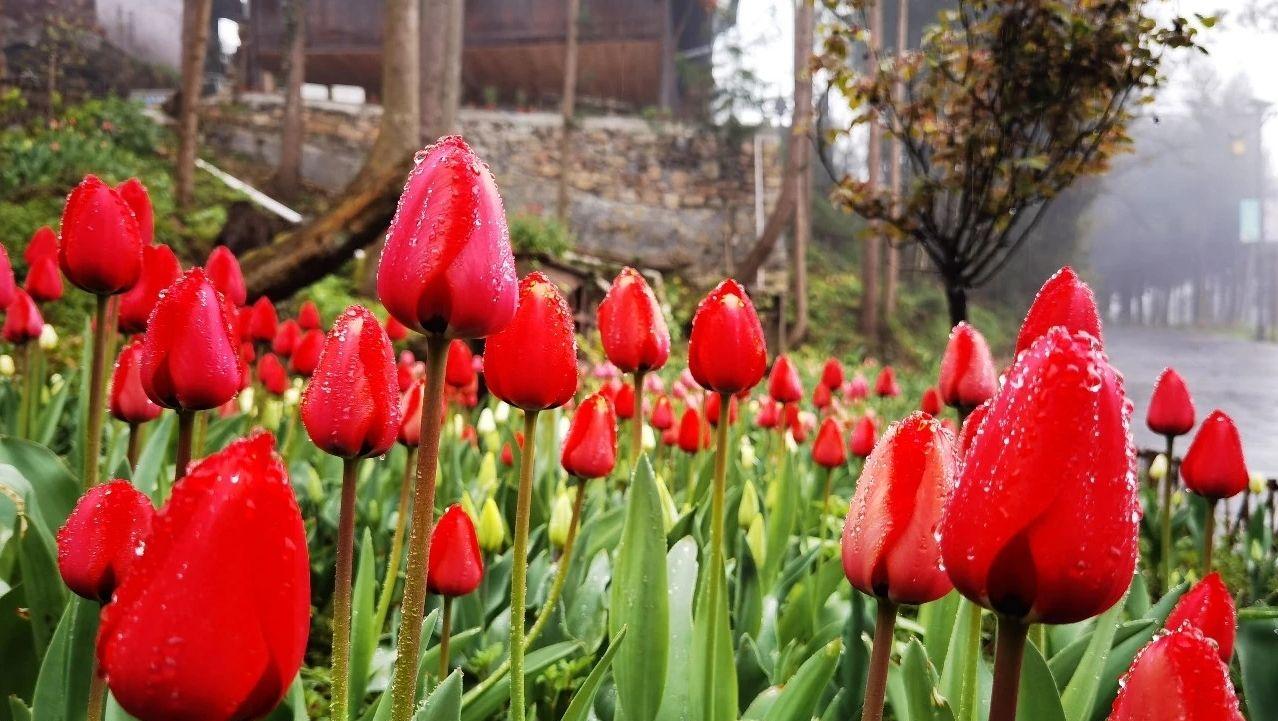Beijing News (reporter Zhou Huaizong) The water buckwheat that grows in the field is soaked in glutinous rice in advance, mixed and steamed together, and then beaten into a stone nest into a rice dumpling... Qingming is approaching, in the Fengxiang River, a Tujia village in Enshi, Hubei Province, the villagers have picked back wild vegetables and glutinous rice to make a traditional Qingming rice, which is also called water buckwheat rice by the locals.
Villagers make buckwheat dumplings. Photographed by respondents
Cao Kun, a college student who returned to the village, told reporters that making Qingming Kang is a local tradition, and every time before and after the Qingming Dynasty, when the water buckwheat blooms, the people in the village will collect the water buckwheat and make it into a Qingming kun, which can be shared with the family, feel the breath of spring, and can also entertain guests and show the folk customs in the village.

Tulips on both sides of the road. Courtesy of respondents
Fengxianghe is a traditional Tujia village, in recent years, with the pace of rural revitalization, the village has rebuilt wooden stilt houses, repaired the appearance of the village, welcomed tourists from all directions, and become a well-known local beautiful village. In December last year, the village planted another 30,000 tulips, and in March, the tulips on both sides of the village's roads, hillsides, and streams opened up, along with the original pine forest, bamboo sea, mountain spring, and wooden building, decorating this ancient village beautifully.
Wooden stilt house. Courtesy of respondents
Last May, the village's farmers' cooperative began receiving tourists. Wooden stilt house, after the transformation of the modern rooms, tourists live in the guest rooms, live with the villagers to eat, feel the original ecological Tujia customs. After the epidemic eased this year, the village has reopened to accept tourists from all over the world to visit and visit and feel the Tujia culture.
Beijing News reporter Zhou Huaizong
Edited by Mu Xiangtong Proofread by Chen Diyan
Source: Beijing News